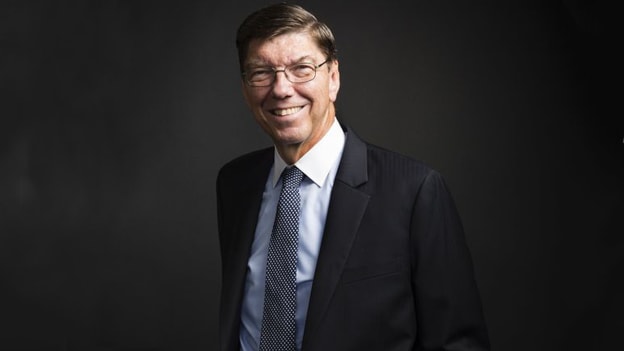Remembering the father of ‘disruptive innovation’

The term ‘disruptive innovation’ is the bedrock of today’s world of work that is being redefined by innovation every step of the way. The business world has Clayton Christensen, the business scholar who coined the very term, to thank. This week innovation officers, CEOs, and CXOs, the world over are saddened by the death of Christensen who introduced the concept of “jobs to be done” that highlighted the need to pay attention to customers’ needs.
Born in Salt Lake City area, Christensen received a bachelor’s degree from Brigham Young University, a master’s from Oxford University, and an MBA and a doctorate from Harvard, where he later started researching and teaching as a professor.
Christensen was battling cancer in 2010 when he addressed the graduating class at Harvard Business School. During a TEDx talk in 2012, titled “How Will You Measure Your Life” based on his 2010 speech, he said he carried the principles he applies in the boardroom and business to his personal life in order to achieve happiness in his personal life.
“When I have my interview with God at the end of my life, he’s not going to ask me to show how high I went in anybody’s org chart or how much money I left behind in the bank when I died,” Christensen said. “It’s actually really important you succeed at what you’re succeeding at, but that isn’t going to be the measure of life.”
The foundation of Christensen’s theory of “disruptive innovation” is that successful conglomerates often neglect the customers at the lower end of their markets and hence miss out on the potential. His most popular example has been the journey of mankind from mainframe computers to that of a nimble laptop which can be used by the end-consumer.
Silicon Valley giants from Napster to Amazon, are the examples of businesses that have cracked the code of capitalizing on the needs of the customers at the lower end of their markets and truly tapping into their requirements and potential.
Christensen was not above developing and enhancing his theories. After refining his thinking about disruption, he acknowledged that while focusing on customers’ core needs continues to remain the key to a successful business, it is crucial to not lose the momentum built while disrupting and starting something new when trying to grow or scale up the business.
That’s where the concept of “jobs to be done” came to rescue.
“It’s not a manual for how to grow or how to predict what customers want. [Jobs to be done] is the second side of the same coin: How can I be sure that competitors won’t kill me and how can I be sure customers will want to buy the product? So, it’s actually a very important compliment to disruption,” Christensen had said.
The beloved business scholar whose books, speeches, classes, have inspired world business leaders died at a Boston hospital, according to media reports.

















